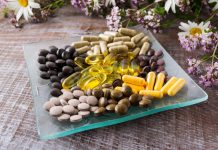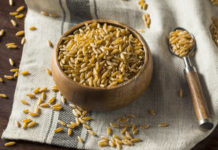As the vibrant shades of autumn leaves give way to the stark landscapes of winter, our bodies naturally adapt to the shifting seasons. Ensuring optimal health becomes paramount with decreasing daylight hours, fluctuating temperatures, and the onset of flu season. One of the ways to bolster our wellness during these months is by considering the addition of supplements. In this article, we delve into the best supplements to consider for autumn and winter to keep you at your healthiest and happiest.
Vitamin D
Known as the ‘sunshine vitamin,’ vitamin D primarily comes from direct sunlight. As autumn and winter roll in, shorter days and more indoor time can reduce our exposure. Vital for calcium absorption, bone health, and immune system support, a deficiency can increase susceptibility to illnesses. While it’s essential to consult a healthcare provider, adults often consider a dose of 10 micrograms a day.
Best-selling Vitamin D
Stuck for inspiration? Check out our list of best-selling Amazon products!
No products found.
Vitamin C
A potent antioxidant, vitamin C is abundant in fruits like oranges and strawberries. Especially vital during colder months, it bolsters the immune system and can minimize cold symptoms. A daily intake for adults aged 19 to 64 is recommended to be 40mg.
Best-selling Vitamin C
Stuck for inspiration? Check out our list of best-selling Amazon products!
No products found.
Omega-3
Found in fatty fish, flaxseeds, and walnuts, Omega-3s are indispensable for brain health, inflammation reduction, and possibly counteracting Seasonal Affective Disorder (SAD). Though the recommended daily intake can vary, a general suggestion is around 250–500 mg for adults.
Best-selling Omega-3 supplements
Stuck for inspiration? Check out our list of best-selling Amazon products!
No products found.
Zinc
In beans, nuts, and whole grains, zinc is a cornerstone for immune health. Research indicates that zinc might reduce its duration when taken early during a cold. Adult males typically aim for 9.5mg a day for men aged between 19 to 64, while females target 7mg.
Best-selling Zinc supplements
Stuck for inspiration? Check out our list of best-selling Amazon products!
No products found.
Ginger
A staple in many kitchens, ginger isn’t just a flavourful spice—it’s also packed with health benefits. Often used as a remedy for nausea, ginger has anti-inflammatory properties and can aid digestion. During the colder months, it serves as a warming agent and can help combat the common cold and flu. Drinking ginger tea or consuming it in supplemental form can provide these benefits. The dosage can vary based on its form and the individual’s needs, so it’s always best to consult a label or healthcare provider for guidance.
Best-selling Ginger supplements
Stuck for inspiration? Check out our list of best-selling Amazon products!
No products found.
Probiotics
Probiotics are beneficial bacteria found in yoghurts and fermented foods, which support healthy gut flora. This aids the immune system and digestion—which is particularly beneficial during festive seasons. While no specific recommended dose exists, a mix of strains with at least 1 to 20 billion CFUs is a general guideline.
Remember, it’s crucial to consult a healthcare professional before starting or altering any supplement regimen to ensure it’s tailored to individual health needs.
Best-selling Probiotics supplements
Stuck for inspiration? Check out our list of best-selling Amazon products!
No products found.
As with any health regimen, it’s essential to consult with a healthcare professional before starting any new supplements. Everyone’s needs are unique, and what works for one person might be better for another. Nevertheless, by being proactive and considering the addition of these supplements, you can ensure that you’re giving your body the best possible defence against the challenges of the colder seasons.
Stay warm, stay well, and embrace the beauty of autumn and winter.
Disclaimer: This article is for informational purposes only and is not a substitute for professional medical advice, diagnosis, or treatment. Always seek the advice of your physician or other qualified health provider with any questions you may have regarding a medical condition or health objectives.
You may be interested in…
This article may include affiliate links to products and services where we may receive a small fee to support the running of this site if you make a purchase or is a sponsored article from one of our select editorial partners providing valuable advice and information to our readers.







































































